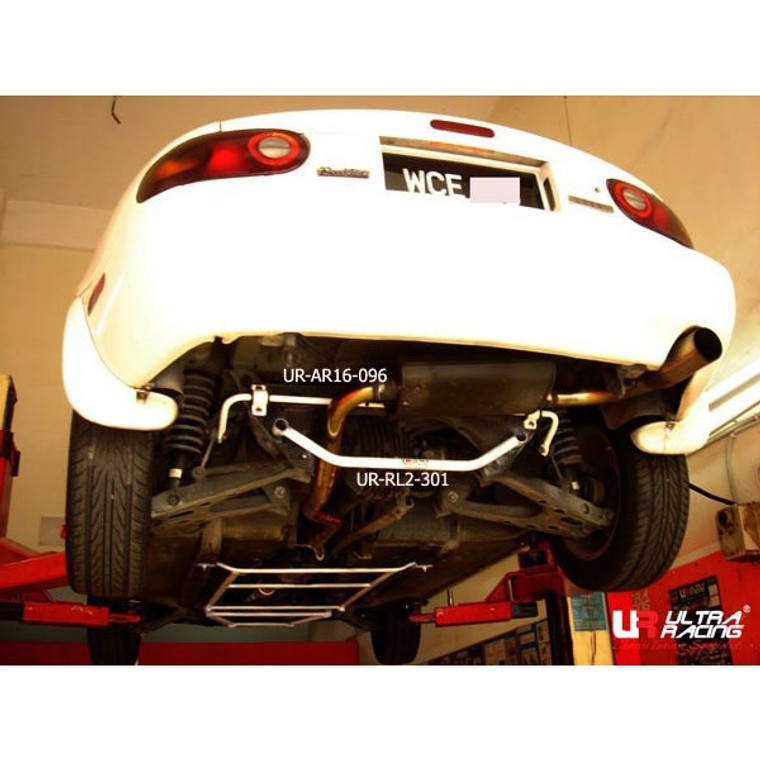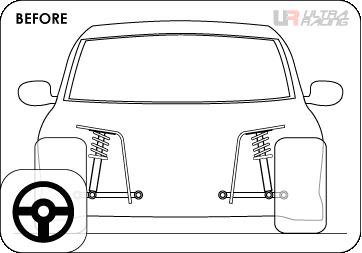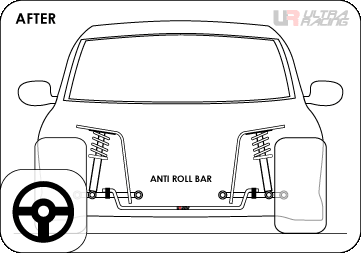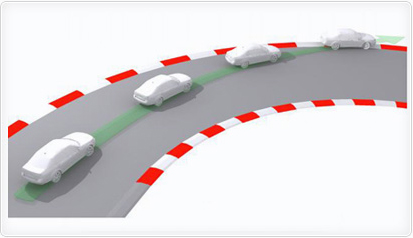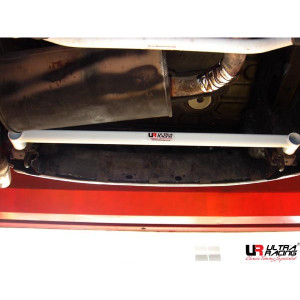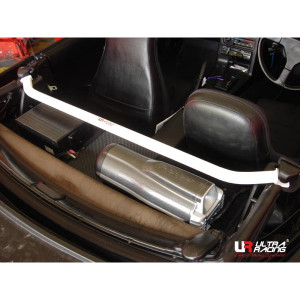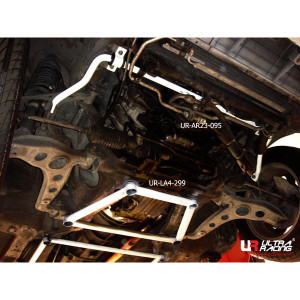
MAZDA MIATA (MX5 NA) 1989-1997 - REAR ANTI-SWAY (16MM)
See Terms of Use
WARRANTY
Each product comes with a unique serial number found on the silver tag. This is for authentication.
All products are backed by a 5 year manufacturing warranty from the date you received your products. Warranty covers welds and metal snaps. If products are re-powder-coated a color other than our company color of white, warrantying may be on either a case-by-case basis or voided.
If you live in an area that sees snow, warranty is limited to 1 year.
MUST READ BEFORE PURCHASING: Bracing has been designed to fit stock vehicles with no aftermarket modifications. Vehicles with high mileage, body damage, or old age may have chassis flex that will cause mounting points for bracing to not line up perfectly. Modification may be needed for bracing to line up perfectly. If you are unsure about fitment, please email us.
ATTENTION: IF APPLICABLE, PLEASE EXPAND THE ADDITIONAL INFORMATION TAB AT THE BOTTOM OF THIS PAGE BEFORE PURCHASING.
Rear anti-sway bars - also called stabilizer bars, are used to keep your vehicle from rolling over. It is a U-shaped steel bar that is connected to each of the vehicle’s rear wheels. When your vehicle goes around a turn, your vehicle’s body rolls to one side, or its weight shifts to one side. When this happens, your vehicle is experiencing “body roll” or “sway.” The sway bar will control each wheel’s suspension to even out your vehicle’s body roll and keep your vehicle more level and in control.
What makes Ultra Racing anti-sway bars unique?
Consumers opt for our anti-sway bars because they are made from solid steel. Some cars come with factory anti-sway bars that are made hollow, which allows for more flex and less rigidity that's needed for performance vehicles. Car manufacturers make their anti-sway bars hollow to allow some give so that modern vehicles of today ride smoother and more comfortably. With an upgraded solid steel anti-sway bar, your vehicle will gain more traction and handle better through hard cornering.
Made from ASTM A500 Grade A (American US Standard Mild Steel). All materials used are carefully selected to ensure the best performance and safety.
For more information on the design, check out our knowledge page: https://ultraracing-usa.com/knowledge/
BEFORE VS AFTER A FRONT ANTI-SWAY BAR | ||
|
BEFORE When cornering a turn, the transfer of weight will make the car sway to one side, causing body roll and difficulty turning, weakening the steering response. |
AFTER The upgraded version of Ultra Racing’s anti-roll bar will be more effective in preventing the car from swaying through corners, greatly reducing body roll and enhancing stability/handling. | |
WHAT IS VEHICLE HANDLING?
|
UNDER-STEER Under-steer is a condition where, while cornering a turn, the front tires begin to slip. With the front tires broken loose from the road and the rear tires continuing to grip, the vehicle will ultimately turn less than desired. The front wheels lose their traction and won’t turn any sharper, even when the steering is being corrected to turn the car more. This will cause the car to go wide instead of following the turn. The dangers of under-steer lead to your vehicle running off the road, possibly hitting obstacles or other vehicles. Under-steer occurs in front-wheel-drive vehicles more often than in rear-wheel-drive vehicles. Car manufacturers employ the FF (front-engine, front-wheel-drive) setup in modern cars for improving driver and passenger safety. The natural behavior of an FF car causes it to have inevitable under-steer due to its heavier front end. Under-steer can be corrected by stiffening the rear end of the vehicle by adding a rear strut bar and a rear anti-roll bar. | 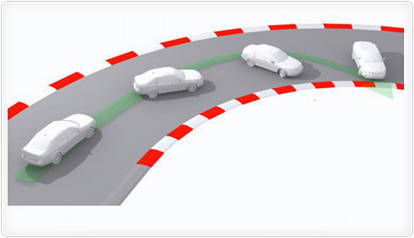 OVER-STEER Over-steer is the direct opposite of under-steer. The front tires continue to grip the road and complete the turn while the rear tires break loose. This causes the rear of the vehicle to kick out, turning the front of the vehicle into the turn even further. Over-steer occurs in rear-wheel-drive vehicles more often than front-wheel-drive vehicles. Sometimes over-steer is done purposefully, which is called "drifting".
FR (front-engine, rear-wheel-drive) or RR (rear-engine, rear-wheel-drive) cars mostly experience over-steer when cornering. Over-steer can be corrected by stiffening the front end of the vehicle by adding a front strut bar and front anti-roll bar. |

